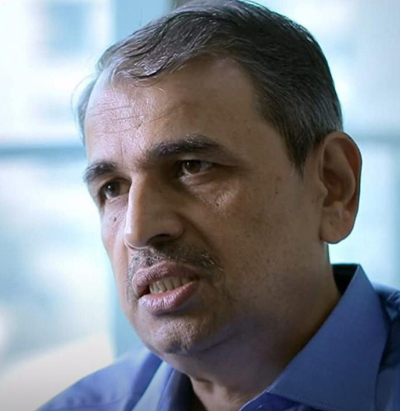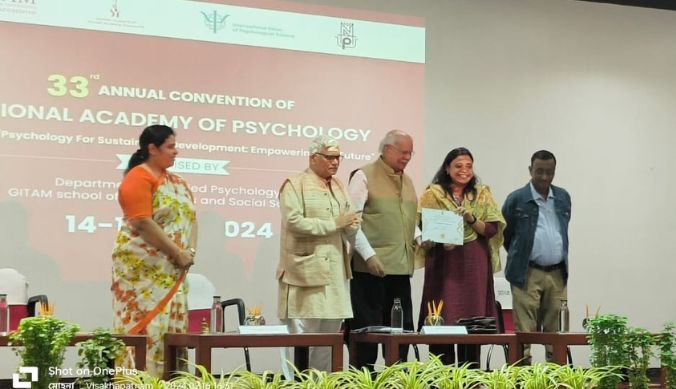Ashoka University’s efforts in science policy making a headway!
L.S. Shashidhara shares on how Ashoka’s Science Policy Initiative is making an impact.

L S Shashidhara
13 January, 2022 | 4m readIn 2019, Ashoka University started this unique Science Policy Initiative (SPI), that helps facilitate or support the different stakeholders in the framing of evidence based policies to address societal problems. SPI blends with Ashoka University’s distinct features as a leading liberal arts and sciences higher education institution in India with an interdisciplinary flavour of research and teaching. Within a thriving culture for expression, research, practical support and thought leadership, Ashoka renders SPI the right environment for policy research and capability building.
SPI, is governed by the overarching vision to complement the efforts of the scientific community in India as well as spur innovation and continuous learning into the knowledge ecosystem. It positions itself to become a forum, initiating discussions on issues, societal problems, science and technology concerns, through stakeholders’ consultations and dialogue; and defining the roadmap for future with the help of evidence-based research, white papers and policy briefs, recommendations and partnerships & collaborations and training and mentoring students of science policy. Dr. Anjali Taneja with formal doctoral training and professional experience in science policy is the force behind all activities of SPI.
Since 2019, SPI has carried out some policy-oriented work across different fields; sustainable development, artificial intelligence, blockchain technology, higher education, new Science, Technology, Innovation Policy (STIP 2020), healthcare, to name a few.
The onset of pandemic and the associated nationwide lockdown led to quite severe challenges in India like the shortage in PPC kits, medical devices, oxygen supply, etc. SPI took up some of these issues and after a series of consultations and research, advocated
(https://indianexpress.com/article/opinion/strengthening-supply-chain-networks-during-a-pandemic-a-consortia-driven-approach-is-the-right-policy-for-india) the need for nation-wide consortiums of research, academic institutions and industry to enable domestic manufacture and supply of RT-PCR kits (https://www.ccamp.res.in/indx-indigenous-diagnostics).
A need has also been felt overtime to develop our capacity at Ashoka to collect, collate, curate, and analyze health data and develop India-specific metrics and visualization tools that would enable policymakers to identify appropriate strategies and schemes in the field of healthcare and public health. While India has achieved significant advances in research and in provision of healthcare as well as public health services, the overall Universal Health Coverage remains poor due to prevailing gaps in information, data access and its analyses. The absence of data or its access at granular levels poses challenges to policymakers while making informed decisions on public health and healthcare.
As a result, through our stakeholders’ discussions and research efforts in SPI, we have initiated a project on Health Analytics, Research and Trends at Ashoka that will involve (i) organize courses and training workshops for capacity building on collecting, collating, and analyzing health data, integrating scientific and socio-economic factors related to public health and in framing evidence-based policies on public health and economics, (ii) collaborate with national and international organizations and experts to conduct advanced research on health data, and (iii) advise on healthcare-related policy decisions and in objectively evaluating the outcomes of various schemes. While the project will focus on India, its work would be valuable across South-East Asia. The work will be governed by the principles of scientific excellence, policy relevance, partnerships and collaboration, and free exchange of knowledge. Similarly, SPI has played an active role in putting together the overall framework for the Centre for Data Science and Advanced Computing (which is coming up) at Ashoka, to promote advanced research and analyses in the field of data science.
Sustainable development has been another area where we have carried out extensive research work to examine and evaluate the best practices at Ashoka in education for sustainable development and cultivation of sustainability skills on the campus.
SPI has also been making significant efforts in enabling Ashoka’s institutional partnerships and collaborations; thereby bridging the gap between academia-government and academia-industry. Ashoka University is already an institutional partner and involved in Government of India (GoI)’s project on Delhi City Knowledge Cluster (https://www.deepc.org.in/). We are now making a headway towards building institutional partnership of Ashoka with GoI in supporting centre-state STI initiatives as well as with other policy forums to strengthen capacity building practices in science and technology.
SPI’s journey has just begun! We have only scratched the surface; a lot needs to be done and can be done. We envision to run specialised training programs and post curated content online on science policy and governance. Our work will always be dedicated towards ensuring strategic growth of Ashoka University and sustainable development of our society.
Best wishes for the new year.
————————–
The author is Professor of Biology and Dean of Research at Ashoka University.













